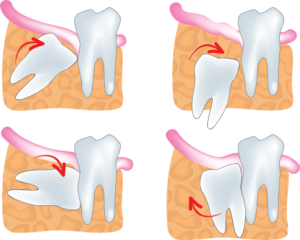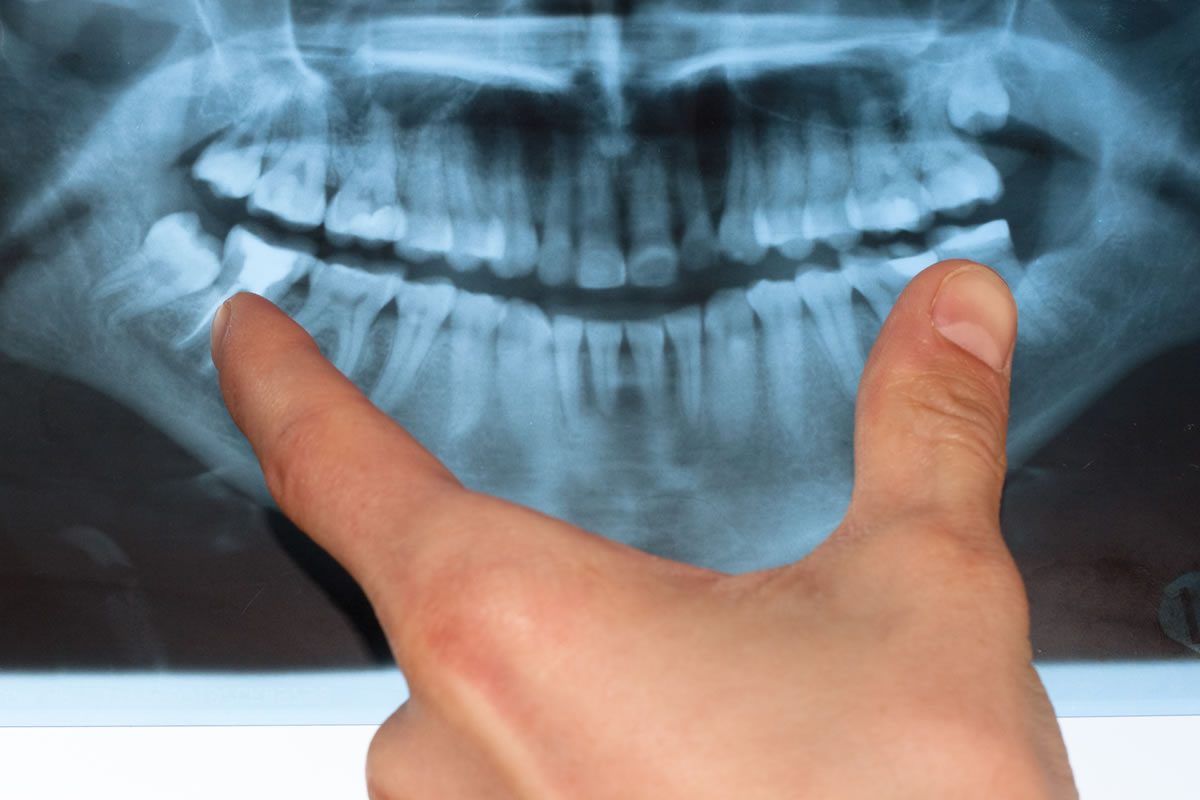Have you ever wondered why we have wisdom teeth? Or what an impacted wisdom tooth is? Or whether or not you need to have your wisdom teeth extracted? Then you’ve come to the right place. In this post, we answer these questions and more. Read on to discover everything you need to know about wisdom teeth.
What are wisdom teeth?
Wisdom teeth are what the final set of molars, the teeth found at the very back of the mouth, are called. These usually first appear quite long after the rest of the adult teeth have already been established in the mouth. Most people’s wisdom teeth break through the gum line in their late teen years to early twenties and can cause varying degrees of discomfort when they do so.
Why do we have wisdom teeth?
Historically, our ancestors would have had use for an extra set of molars for grinding and chewing food that was raw and hard to tear. Many anthropologists believe that this is why many people still have wisdom teeth grow in, even though our consumption of food no longer requires an extra set of teeth. Some people don’t get wisdom teeth at all and it’s theorized that this happens because we do not have evolutionary use for them any more.
Why do wisdom teeth grow in crooked?
It’s actually a myth that all wisdom teeth grow in crookedly. There are many cases where wisdom teeth grow in perfectly straight and can contribute to the mouth as a healthy additional set of teeth. When this happens, they don’t need to be removed. Often, wisdom teeth do grow in crooked, however, and the reason depends on the specific mouth they are growing into and the genetics of each person.
What happens when wisdom teeth are misaligned?
When wisdom teeth grow in crooked, there is a high possibility that they can negatively affect the other teeth surrounding them. This means that the misaligned tooth could cause crowding, damage to adjacent teeth, or even jaw and nerve damage. It’s best to professionally remove wisdom teeth that pose a threat to the health of the rest of the mouth.
What is an impacted wisdom tooth?
 An impacted wisdom tooth is one that isn’t able to break through the gum line because it is being blocked by another tooth or teeth. There is not enough room for the wisdom tooth to erupt, and this can result in great discomfort or even severe pain. If the impacted wisdom tooth does manage to push through the little space it has before it is removed, it can cause gum damage, infection, and damage to the jaw line or other teeth.
An impacted wisdom tooth is one that isn’t able to break through the gum line because it is being blocked by another tooth or teeth. There is not enough room for the wisdom tooth to erupt, and this can result in great discomfort or even severe pain. If the impacted wisdom tooth does manage to push through the little space it has before it is removed, it can cause gum damage, infection, and damage to the jaw line or other teeth.
How are wisdom teeth removed?
Each case is different and the simplicity of the procedure depends on how developed the tooth is, whether or not it has broken through the gum line, and how much damage it has caused to the rest of the mouth. Your dentist will describe your specific situation to you, outlining exactly what you can expect during the procedure.
Wisdom teeth that have broken through the gum line are easily extracted, which is why your dentist may choose to wait to conduct a removal until this has happened. One of the most difficult removal procedures is when the wisdom tooth is embedded in the bone as this requires the tooth to be removed in different parts. In any case, a local anaesthetic will be applied to the area of the mouth being operated on and your dentist may decide to also use sedation to keep you more comfortable.
How long does it take to recover after a wisdom tooth is removed?
Recovery time varies from person to person, with a full recovery taking anywhere from a couple of weeks to a few months. During this time, it’s important to follow the directions given to you by your dentist very carefully and to avoid aggravating the area or ruining stitches with harsh foods, drinks, and suction. If non-dissolving stitches are used, they will be removed approximately one week after the procedure. Your dentist will schedule a checkup with you to see how well you are healing not long after the procedure is done and will update you with your progress.
Want to see a dentist?
If you have other questions about wisdom teeth or would like the advice of a leading dental professional, find the one nearest you with 123 Dentist.




 December is finally here, and if you’re not already hyped about the holidays, you’re about to […]
December is finally here, and if you’re not already hyped about the holidays, you’re about to […]

